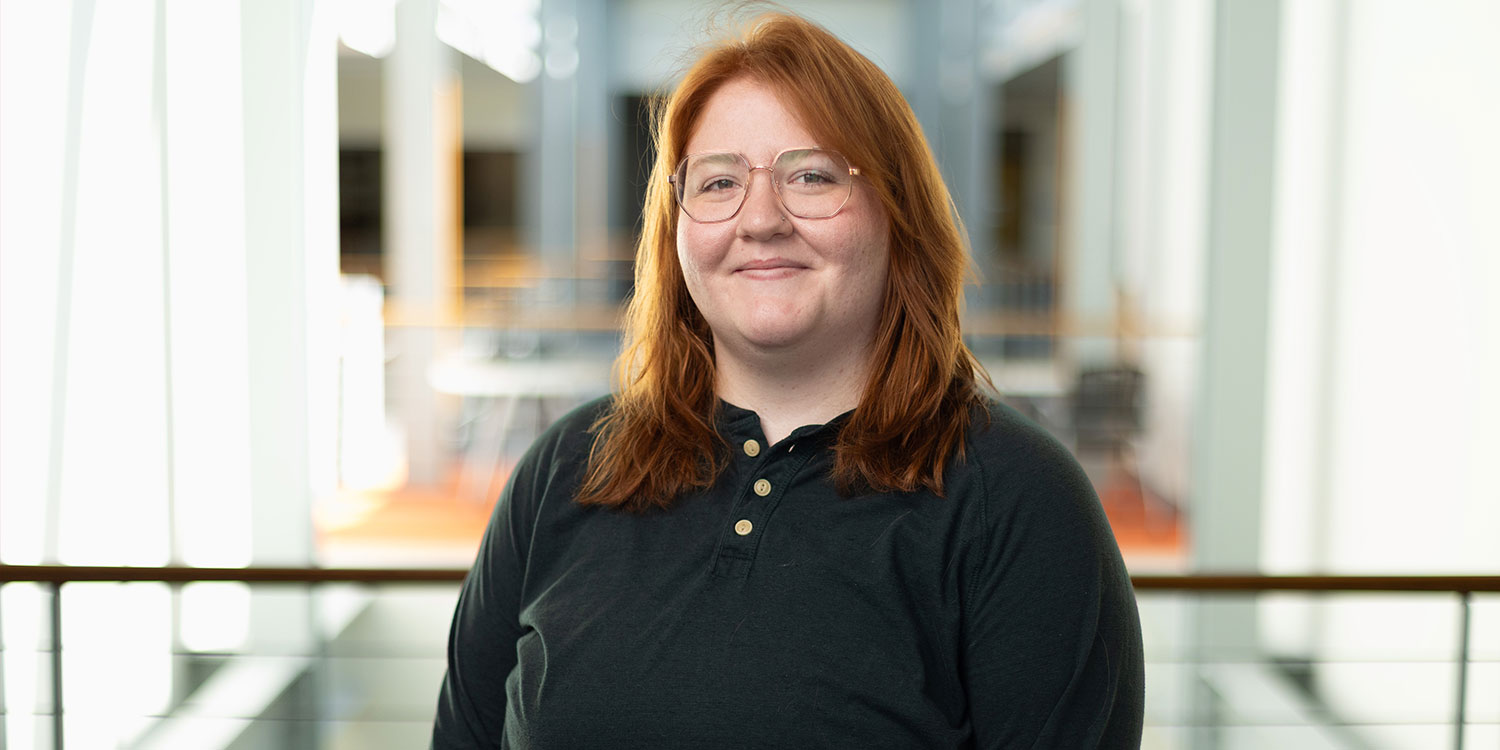When Gaby McCain ’25 first arrived at Capital University, social work wasn’t even on her radar. She initially considered psychology, then briefly dabbled in film and media production. It wasn’t until her second year, after receiving an autism and ADHD diagnosis, that her path began to take shape.
The assessment was conducted by a social worker, and that moment left a lasting impression.
“I thought this was amazing,” she said. “I would love to be able to provide other people with this service in the future and provide insight into who they are as a person.”
That realization led McCain to social work, where a meeting with the department chair sealed the deal. “From there, I just knew that’s what I wanted to do.”
Since then, McCain has immersed herself in both academics and campus life. She’s the president and founder of the Capital Autism Society, vice president of the Student Social Work Association, and a peer educator with Wellness and Prevention. She’s also served as an Orientation Leader and was recently part of Capital’s Homecoming Court.
McCain’s field placement with the National Association of Social Workers (NASW) – Ohio Chapter has been a transformative experience. From helping plan the annual conference and gala to preparing for the Day of Action, where she spoke directly with legislators, her work reflects a growing passion for macro social work.
“I fall more in love with macro social work every day that I am there,” she said. “Social work is so expansive, and there is such a wide array of things that can be done.”
One of her most impactful projects at NASW-OH is developing the spring issue of the organization’s magazine, which focuses on neurodivergence in social work. McCain surveyed social workers across Ohio to better understand attitudes toward neurodiversity and identify gaps in training. She’s also conducted interviews with key advocates, including the co-founder of the Black Autism Support Society, and is contributing original articles.
As part of her field placement, McCain created an informational one-pager for queer youth on House Bill 68, ensuring young people are informed about the limits of confidentiality when accessing mental health services. Through all of these efforts, McCain has helped bridge knowledge gaps and advocate for more inclusive, informed practices in the field.
Despite the many highlights, McCain acknowledges challenges, particularly around becoming more comfortable in leadership roles.
“I think the most challenging thing for me is becoming more confident being in social situations. This seems like it should be easy, considering I’m in social work, but it actually takes quite a bit of practice still to be confident in something you’re not used to it,” she said. Yet, her experiences leading meetings, presenting at conferences, and conducting interviews are helping her build that confidence.
Reflecting on her journey, McCain says, “If I hadn’t had this opportunity while I was at Capital, I probably would not have ever ventured into macro social work. But now that I’ve got my hands in it, I never want it to end.”
McCain presented her research project at the 29th Annual Symposium on Undergraduate Scholarship and the 9th Annual Graduate Research Forum at Capital on April 16. She will attend Capital University in the fall of 2025 to pursue her Master of Social Work (MSW) degree.
To learn more about undergraduate research at Capital, visit https://www.capital.edu/academics/experiential-learning/undergraduate-research/research-symposium/.
To learn more about social work at Capital, visit https://www.capital.edu/academics/social-work/.
